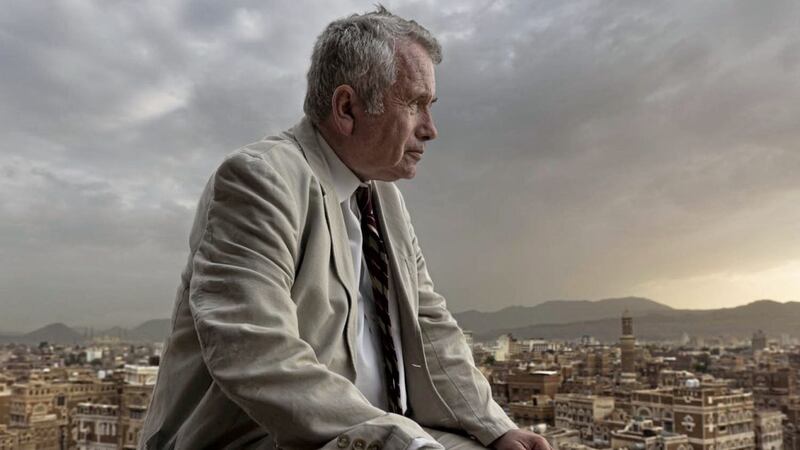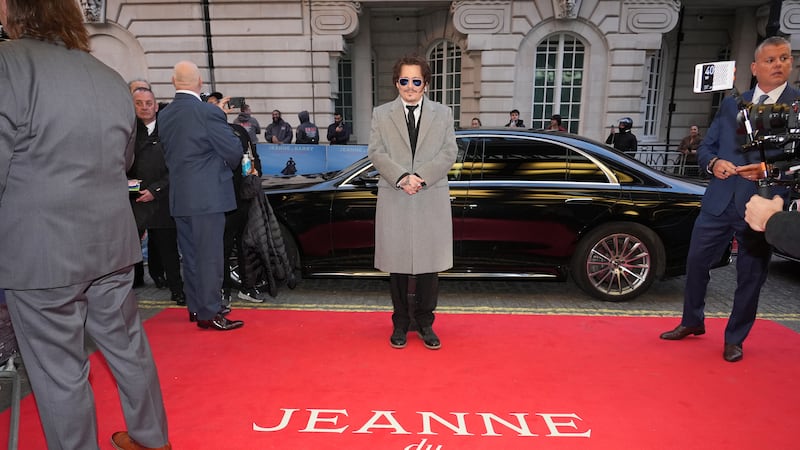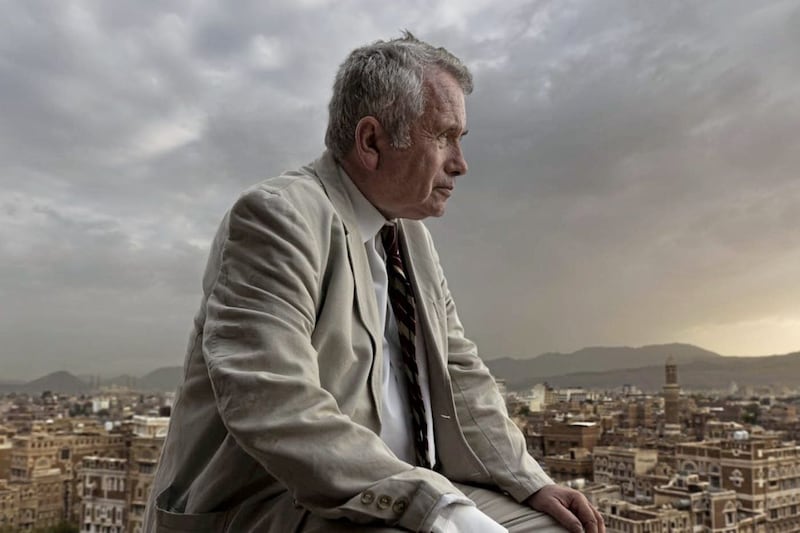IN VETERAN reporter Martin Bell's own words, "anybody of a certain age will probably remember me". Easily identified by his fondness for wearing white suits – adopted to combat extreme heat on assignment in Croatia in 1991, they became Bell's good luck charm "when bullets were flying through the air and none connected with me" – the former BBC journalist became famous for his harrowing TV reports on the war in Bosnia.
Suffolk-born Bell (79) was already a seasoned war hack by then, graduating from humble beginnings as a 'Grade B reporter' with BBC's Look East programme to covering Vietnam, Israel, Northern Ireland, Africa and Iraq.
He also witnessed the 1968 riots in Paris and Chicago and spent over a decade as the BBC's Washington correspondent during the Reagan era.
In Bosnia in 1992, Bell discovered his white suits didn't render him impervious, even when combined with a BBC-issue flak jacket: after surviving a shrapnel wound, he returned to file a powerful 1993 Panorama report credited with prompting the UN's belated military intervention in the war.
In 1997, Bell resigned from the BBC to run for Parliament as an independent candidate in Tatton: 'the man in the white suit' duly bested disgraced Tory incumbent Neil Hamilton to become the first independent MP elected to parliament since 1951.
You can read Bell's recollections of all this along with his views on the decline of journalism in his tellingly titled memoir, War and The Death of News, which the former BBC man will be discussing at an event at Bangor's Open House Festival next month.
"I always like to come back and I do it quite regularly," says Bell of his imminent return to Northern Ireland, where he once rushed to the scene of a Belfast pub bombing only to find his own Nine O'Clock News report on the latest Troubles still playing on a miraculously intact TV set.
That's one of many surreal incidents recounted in War and The Death of News, a sequel of sorts to Bell's earlier memoir In Harm's Way (1995), which focused on his time reporting in Bosnia.
"What happened was I found all my notebooks in my attic and I felt it was a book that had to be written," he explains of the new volume.
"Obviously, there are little bits in it about Northern Ireland that I thought worth putting down – not least the degree of censorship which we suffered at BBC Belfast."
Indeed, Bell expounds on the editorial pressures he faced in Belfast during the early years of the Troubles: on one occasion, he was instructed to refer to families burnt out of their homes on the Falls Road as 'refugees' rather than Catholics for fear of inciting republican reprisals.
And, no matter how even handed the BBC's coverage, as 'national broadcasters' they were always condemned to a far harsher level of criticism from the natives than their commercial competitors at ITN.
"'Tell the truth' was the slogan shouted at us by both sides," he writes.
Some years later, Bell's BBC bosses in London requestioned an ex-RUC armoured Land Rover to help protect him and his news crew in Bosnia (Bell was standing beside it when he sustained his 1992 shrapnel wound): the four-and-a-half tonne beast was duly christened Miss Piggy.
The veteran hack also recalls several memorable run-ins with the late Ian Paisley, one of the foremost critics of the "Papish Broadcasting Corporation" who publicly declared the reporter "no friend of the Protestant and loyalist people of Ulster".
In a strange twist of fate, the pair later found themselves beside one another in the House of Commons.
"He couldn't have been more affable," Bell tells me, although it seems the subject of their previous skirmishes in the north never came up.
"I thought it wise not to raise the issue," he admits wryly.
Of his book's provocative title, Bell makes no apologies for proclaiming the demise of his former profession, but nor does he blame the current generation of news crews for deserting modern combat zones in an era where 'the rules of war' as they once existed no longer apply.
"Everything changed after 9/11," says the author, referring to how journalists have now became 'legitimate targets' as evidenced by the assassination of Sunday Times veteran Marie Colvin, targeted by the Syrian army in the wake of her damning report on the siege of Homs in 2012.
"In the particular case of war reporting there has been a necessary retreat from reality," explains Bell, who since 2001 has highlighted the impact of warfare on children around the world in his role as a UNICEF ambassador.
"If I were trying to do it now, I'd do just the same as everybody else does and stay away from the front-lines for fear of being kidnapped, ransomed and executed."
As well as lamenting the disappearance of foreign correspondents from the world's most dangerous hotspots, Bell offers his views on the rise of 'fake news' in the book.
"I doubt if anything can be done about the decline in war reporting," he tells me, "but a lot can be done to defend fact-based news gathering against the present onslaught, especially from the 45th president of the United States.
"The idea of de-legitimising journalism has been common to many dictatorships – it is part of their impulse to use the news for their own purposes."
Indeed, Bell believes that the proliferation of fake news might actually be helping boost the demand for quality reporting, as evidenced by the uptick in online subscriptions for The New York Times and The Washington Post during the Trump presidency.
"I find this very encouraging," he says. "I think that real news, fact-based news – what I would even call 'slow news' is making a comeback."
And, while Bell might be long retired from the news game (he turns 80 next month), one of his children is currently keeping the family name on the air – albeit at a safe distance from the world's war zones.
"I always urged my daughters to do anything except to go into journalism," he says, "but my elder daughter Melissa is now the Paris correspondent of CNN."
Of his own career covering global conflict, it's the camaraderie of the press corps Bell misses the most.
"I miss the comradeships," he admits. "I made some wonderful friends in those war zones. But I don't miss the danger, I certainly don't miss the need to keep filing all the time. I think I got well out of it when I did."
:: Martin Bell, War and The Death of News, Friday August 17, Space Theatre, Bangor. Tickets £15 via Openhousefestival.com




